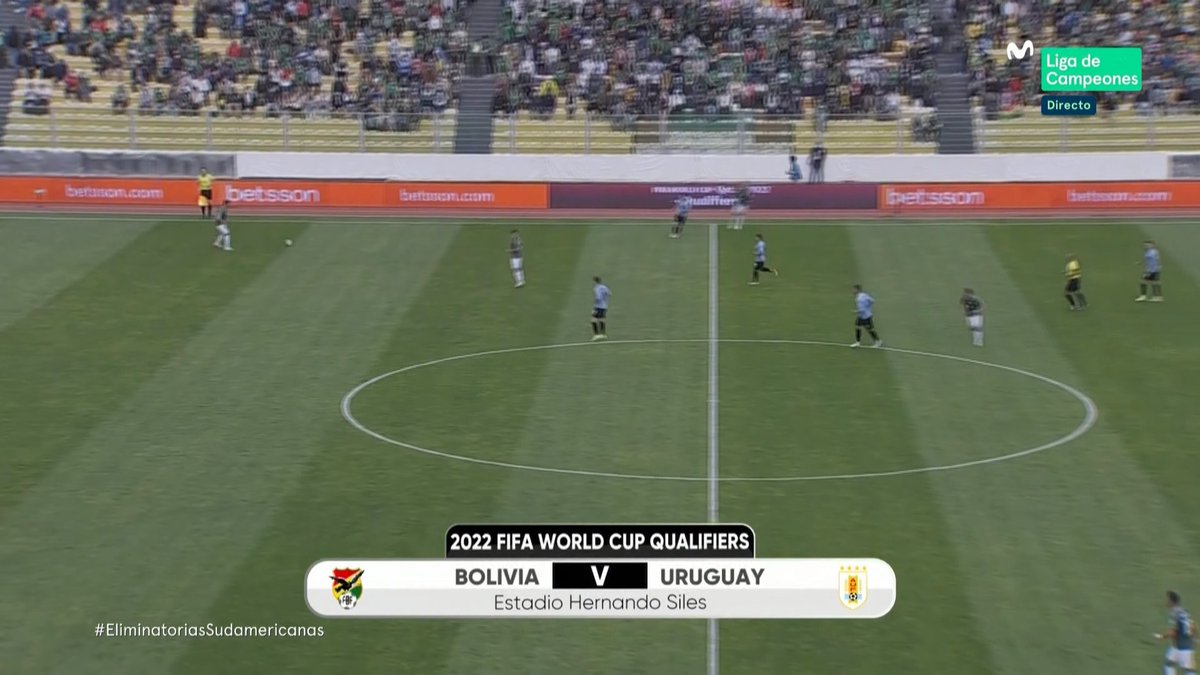Key Highlights of the Match: Uruguay Vs Bolivia Highlights

Uruguay vs bolivia highlights – The highly anticipated clash between Uruguay and Bolivia lived up to its expectations, delivering a thrilling encounter filled with captivating moments and decisive plays.
The intense clash between Uruguay and Bolivia was a spectacle to behold, showcasing the raw passion and skill of South American football. However, for those seeking a more tactical and strategic showdown, the upcoming france vs belgium match promises to deliver.
The European giants will pit their wits against each other, employing intricate formations and lightning-fast counterattacks. While the battle in South America may have been fiery, the clash between France and Belgium is poised to be a cerebral chess match that will captivate football enthusiasts worldwide.
Goals and Assists
The match witnessed a total of three goals, with Uruguay emerging victorious with a 2-1 scoreline. The opening goal came in the 19th minute, when Darwin Núñez capitalized on a brilliant assist from Federico Valverde to give Uruguay the lead. Bolivia equalized in the 35th minute through a stunning strike from Marcelo Martins, assisted by Boris Céspedes. However, Uruguay regained the advantage in the 54th minute, as Luis Suárez converted a penalty kick, earning his team a crucial victory.
Crucial Saves
Both goalkeepers, Sergio Rochet for Uruguay and Carlos Lampe for Bolivia, played pivotal roles in the outcome of the match. Rochet made several crucial saves, including a stunning stop to deny Martins in the second half, preserving Uruguay’s lead. Lampe also showcased his abilities, making a series of impressive saves to keep Bolivia in the game.
Individual Performances, Uruguay vs bolivia highlights
Several players stood out with their exceptional performances in the match.
Uruguay and Bolivia clashed in a heated match, with the former emerging victorious. However, the game was overshadowed by the controversy surrounding coach Marcelo Bielsa, who was suspended for his involvement in an altercation with an opposing player. Despite the suspension, Bielsa’s influence on the team was evident in Uruguay’s dominant performance on the field.
- Darwin Núñez: The Uruguayan forward displayed his predatory instincts, scoring the opening goal and causing constant threats to the Bolivian defense.
- Federico Valverde: The Real Madrid midfielder provided a moment of brilliance with his assist for Núñez’s goal, demonstrating his creative abilities.
- Luis Suárez: The veteran striker proved his worth, converting a crucial penalty kick to secure the victory for Uruguay.
- Sergio Rochet: The Uruguayan goalkeeper made several vital saves, including a stunning stop in the second half, showcasing his exceptional reflexes and shot-stopping abilities.
Tactical Analysis

In this match, Uruguay employed a 4-4-2 formation, while Bolivia opted for a 5-3-2 formation. Uruguay’s formation emphasized a balanced approach, with four defenders providing solidity at the back and four midfielders offering support both in attack and defense. Bolivia’s formation, on the other hand, prioritized defensive stability, with five defenders forming a solid backline and three midfielders tasked with protecting the defense and initiating attacks.
Uruguay’s Tactics
Uruguay’s tactics were characterized by their high press and quick passing. The team’s forwards, Luis Suarez and Edinson Cavani, were constantly pressing the Bolivian defenders, forcing them into mistakes and creating opportunities for themselves. In midfield, Federico Valverde and Rodrigo Bentancur controlled the tempo of the game, dictating the pace and direction of Uruguay’s attacks. The full-backs, Matias Vina and Guillermo Varela, provided width and support for the forwards, creating overlapping runs and delivering crosses into the box.
Bolivia’s Tactics
Bolivia’s tactics were more conservative, focused on defending deep and hitting Uruguay on the counterattack. The team’s five defenders stayed compact and organized, making it difficult for Uruguay to break through. In midfield, Alejandro Chumacero and Leonel Justiniano provided defensive cover, while Erwin Saavedra looked to create chances for the forwards. Up front, Marcelo Moreno and Rodrigo Ramallo were tasked with holding up the ball and creating opportunities for themselves and their teammates.
Influence on the Outcome
Uruguay’s tactics ultimately proved to be more effective in this match. Their high press and quick passing forced Bolivia into mistakes, and their attacking players were able to take advantage of these errors to create chances and score goals. Bolivia’s defensive tactics were solid, but they were unable to create enough chances to trouble Uruguay’s defense. In the end, Uruguay’s attacking prowess and Bolivia’s lack of attacking threat proved to be the deciding factors in the match.
Cultural and Historical Context

The rivalry between Uruguay and Bolivia extends back to the 19th century, when both countries were part of the Spanish Empire. After gaining independence, Uruguay and Bolivia fought a series of wars over territory, including the War of the Pacific (1879-1883), which resulted in Bolivia losing its access to the Pacific Ocean.
The football match between Uruguay and Bolivia is a highly anticipated event in both countries, and it is seen as a way to settle old scores. For Uruguay, the match is a chance to prove its superiority over its smaller neighbor. For Bolivia, the match is an opportunity to avenge its past defeats and to show the world that it is a force to be reckoned with.
Political Dynamics
The match between Uruguay and Bolivia also reflects the broader social and political dynamics between the two countries. Uruguay is a relatively wealthy and developed country, while Bolivia is one of the poorest countries in South America. The match is often seen as a way for Bolivia to challenge Uruguay’s economic and political dominance.